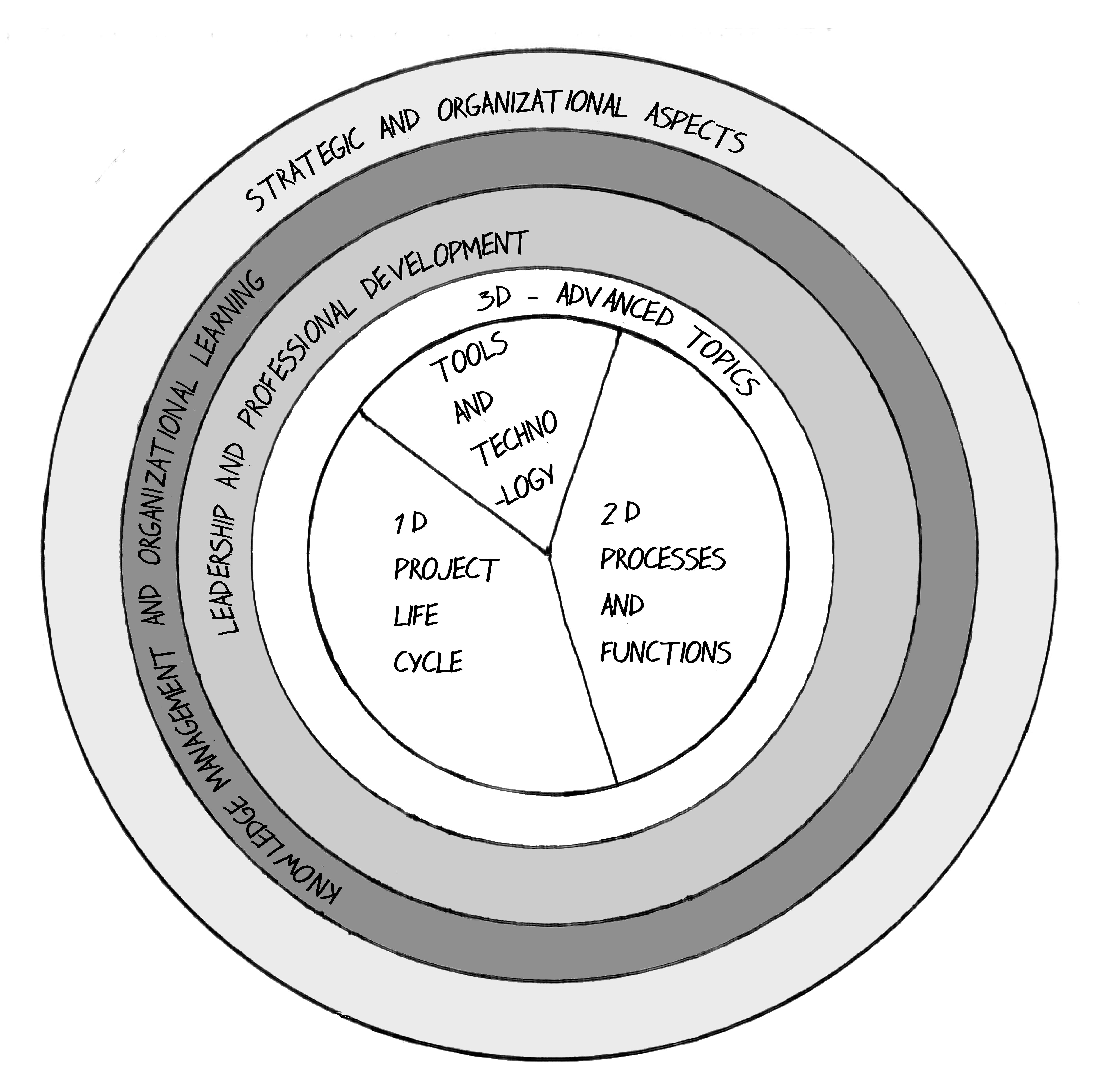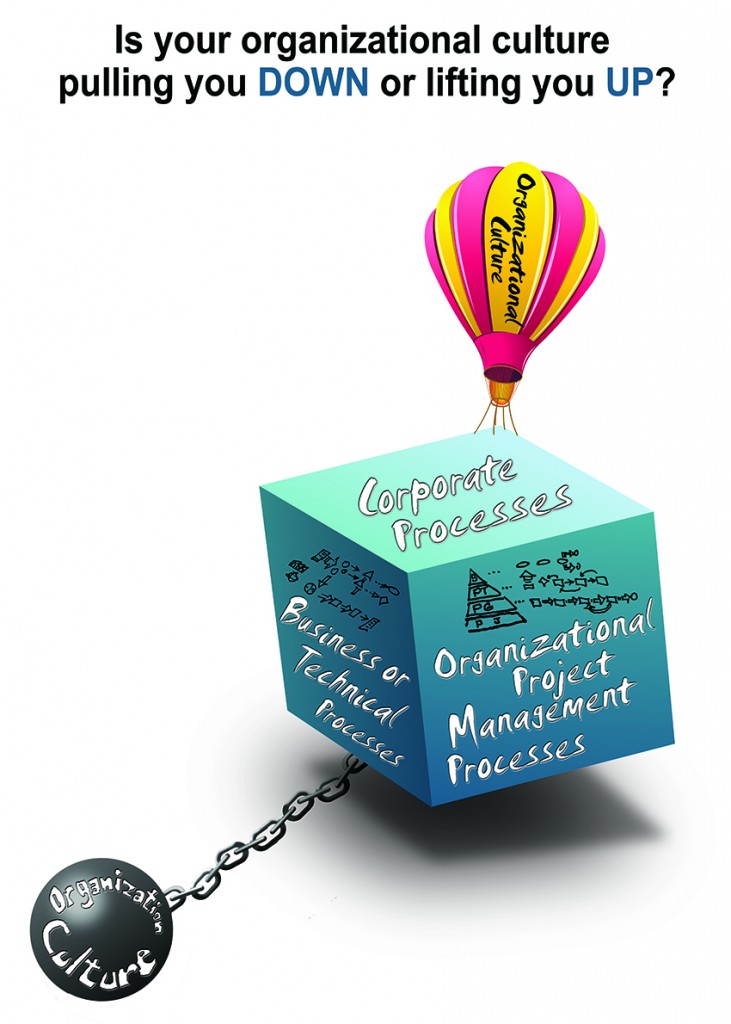We often hear from practitioners and read on social media platforms that many organizations around the world, do not implement proper project management practices. Maybe the situation is different from one country to another, and one cannot generalize. However, the question is valid, why (some) organizations do not follow ‘proper’ project management practices?
What is Proper?
‘Proper’ project management practices cannot be readily defined since project management is a management domain that contains a blend of science, art, psychology, and maybe even some mojo or mumbo jumbo. Therefore,
- Some organizations could follow a basic form of project management and that could be acceptable.
- Others might follow common sense, and this could be ok in some situations.
- Some believe certifications is the answers, and it might be on some occasions.
However, it is not common sense to depend on common sense to manage projects with some complexity, and projects that require a high level of resources.
Then, what is proper?
It is not for us to judge. We can only offer a professional opinion.
Proper, generically, is when organizations can deliver their projects per plan and deliver the expected benefits. We can add, they should have the ‘proper system’ that their teams should follow to ensure consistency and deliver value. If the organization is small and only handle small projects, maybe a basic Organizational Project Management System is enough. On the other hand, for medium to large organizations delivering medium to large and complex projects, they need a comprehensive and sustainable Organizational Project Management System (OPMS).

The Seven Elements of Project Management Maturity™ – This is the SUKAD approach for building a sustainable Organizational Project Management System!
So why some organizations do not have a ‘proper system’
There can be tens of logical or illogical reasons, such as:
- Some do not believe in the value of project management.
- Some think project management is another layer of management.
- Some believe that project management is common sense and anyone can manage projects.
- Others believe that project management is a bureaucratic process.
- A few might believe that project management is a killer of innovation.
- Quite a few might not have heard that project management is a formal and independent domain.
- Some assume that management = project management.
- Many organizations and individuals believe that certifying their people is enough.
- Some might believe that project management is important, but do not know where and how to start.
- Some want it but hear about PMO failures, so they hesitate.
- The list can go on.
 Further, let us address three other reasons, that might not be politically correct. In some situations, management might know the value but do not implement a system because:
Further, let us address three other reasons, that might not be politically correct. In some situations, management might know the value but do not implement a system because:
- They know proper project management can expose corruption.
- Proper project management can expose inefficiencies in the management and individuals.
- Proper project management can expose incompetence.
Whose fault is it?
 It is too common to hear and read posts from people in project management, especially those who have achieved the PMP or another certification, blaming management. They might throw in a few derogatory statements here and there. I am not here to defend management, like everything else, some managers are great, and some are incompetent. However, having been an employee, and entrepreneur, and a manager, we believe the fault is at all levels.
It is too common to hear and read posts from people in project management, especially those who have achieved the PMP or another certification, blaming management. They might throw in a few derogatory statements here and there. I am not here to defend management, like everything else, some managers are great, and some are incompetent. However, having been an employee, and entrepreneur, and a manager, we believe the fault is at all levels.
Yes, change (organizational change) through top management directive (if authentic) can spread faster than change driven from the employees’ ranks. However, executive managers do not know everything. They might not know or understand project management. They might not have seen the value in project management practices. So why should they spend money on projects (building an Organizational Project Management System) if they do not see the value? In the end, executives are people (individuals), and people can be influenced.
Let us ask a question here to those who blame management.
Assuming no corruption or obvious incompetence, do you think an executive will refuse practices that can add value, improve the organizational performance, enhance profitability, and possibly fill their pockets with bonuses? It is our professional view is that many executives have not seen the value of project management. Or, they are burned from the “market” advocacy of the wrong things, such as certifications that do not lead to enhance performance or PMO that do not deliver on its value proposition.
Let us elaborate:
- Organizations like IPMA and PMI have been around since the 1960’s, but there has not been any revolutionary advancement in project management, besides the business of certifications. We are not saying there are no improvements, but no paradigm-shifting changes.
- Certifications from these associations have been around for more than 30 years, and there are millions of certificate holders (from various associations), yet we have not seen a single, independent study that clearly shows a direct correlation between certifications and the bottom line; or triple bottom line.
- Years ago, PMO became the hot market trend. However, there are numerous studies that show that many PMO’s fails and they only live for 2 to 3 years.
- Also a few years back, we started to hear about waterfall has failed us and we need Agile and all of sudden we see many associations jumping on the bandwagon with Agile certifications. Recently we have heard about Agile failures or that it is not the magic wand.
Let us also be open and direct, with direct questions to those who have earned a certificate like a PMP or PRINCE2, or even higher level certifications.
- Have your organizational performance improved, notably for management to see?
- Have you tried to update existing procedures, policies, methods for managing projects at work?
- Have you sought to develop NEW procedures, policies, methods for managing projects at work?
- Have you organized sessions, at work, to help pass the knowledge and the importance of project management?
- Have you done anything to prove that the certification(s) you have achieved have led to changes in the organizations besides the three letters (or chain of three letters) next to your name?
If you have done some or all of the above – great – you are likely to make a difference and sooner or later change will happen. Patience is important since change takes time.
However, if you only did one or none of the above, then what did the certification do for the ORGANIZATION?
We have to get out of the mentality that shouts “hey, I am now an ‘ABC’ or ‘XYZ’ you must respect me and give me my right; I deserve to manage projects” — or “I deserve a promotion or a raise“, you fill in the blank.
Organizational Culture

The current version of the links between QMS – OPM System – and Corporate Processes
The previous image, modified from the work of my good friend Nah Wee Yang of Knowledge Method Singapore. Nah Wee Yang drew the original image with the chain only as I was leading a workshop on OPMS in Singapore. Basically, that organizational culture could hold down people and performance. However, the optimist in Mounir Ajam refuses to be chained down and believe that although organizational (or countries) cultures could chain us or hold us down, the balloon represents the innovative and pioneering spirit that can drive a change.
Closing Remarks
I do not want to be personal here, but I can share with you that with or without certification, you can make the difference in your organization. Change yourself first, then change the immediate circle around you and spread out the ripple effect. Sweet talks might be fun and might get you somewhere, but sooner or later managers can read through the talk and wants actions – tangible results!
Even in the Arab World and in tough organizations, you can make a change, so what are you waiting for? Innovate, improve, conduct that lecture to your colleague, document the successes and present facts to management. Maybe this manager is an idiot but another one might welcome the initiative and see the light.
Your destiny is in your hands!
[contact-form][contact-field label=’Name’ type=’name’ required=’1’/][contact-field label=’Email’ type=’email’ required=’1’/][contact-field label=’Website’ type=’url’/][contact-field label=’Comment’ type=’textarea’ required=’1’/][/contact-form]
